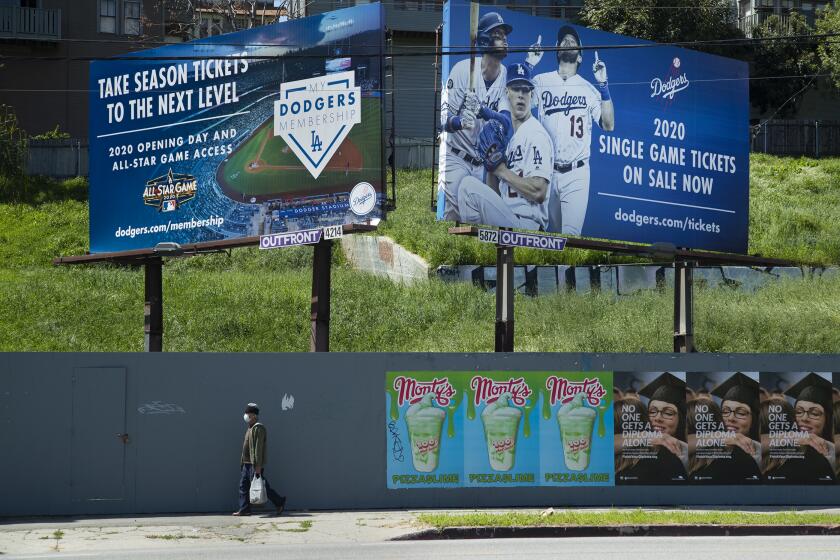Better baseball on TV: What MLB can learn from ‘Bachelor’ and ‘Millionaire’
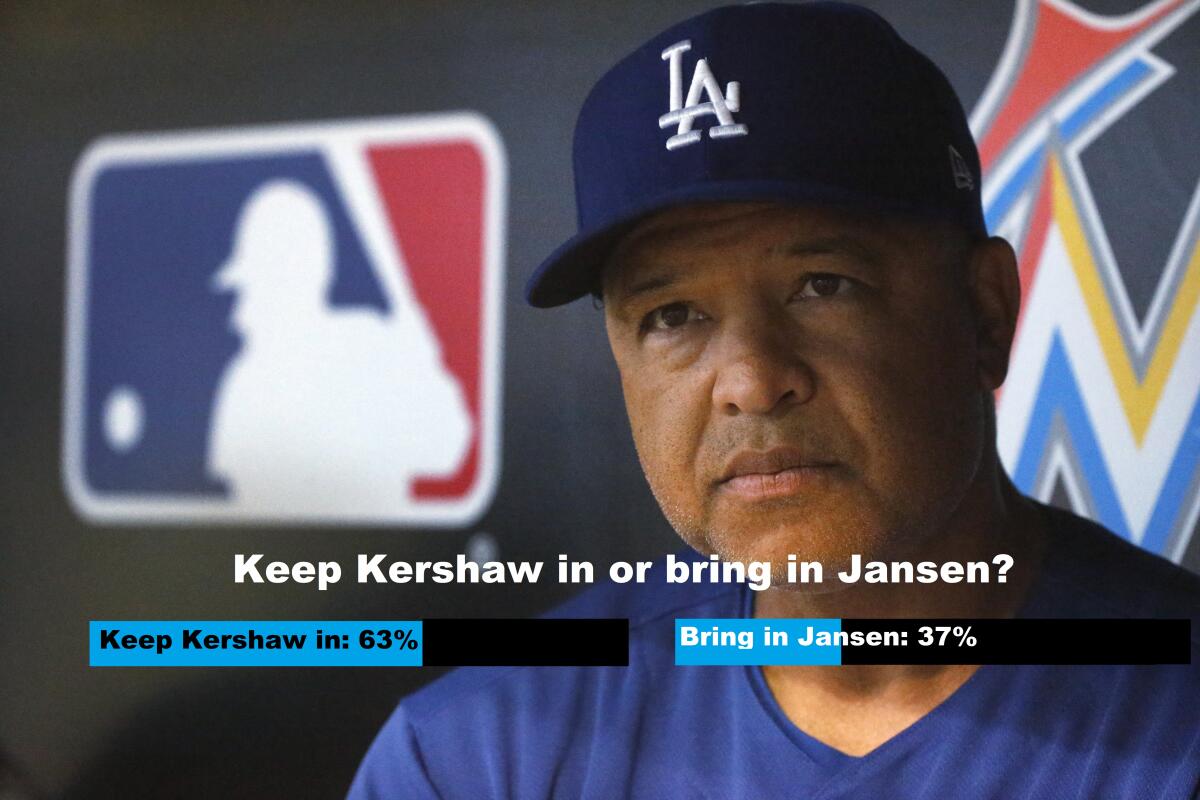
- Share via
Third in a series of articles about the 2020 futures of major sports leagues.
We’re six weeks into what should have been the major league baseball season, and we’ll be lucky to see a game anytime in the next six weeks. This is not the time for a return to baseball as we know it.
This is the downtime for creative minds to give baseball an imaginative makeover.
When the major leagues play again, they almost certainly will do so without fans. Do not fret over what you might fear as the joyless spectacle of tens of thousands of empty seats.
Instead, think of it this way: Baseball will be played in a giant television studio.
TV executives could lead the way in reinventing baseball as entertainment, building a bigger audience and inspiring dramatic changes that could outlast the COVID-19 pandemic.
“Even if none of this had happened, you can look at the ratings of baseball and see they are starting to trend downward,” ABC senior vice president Rob Mills said.
“It needs to be freshened up. If we were looking at this as a TV show, we’d say, ‘What can we do to refresh it, to look at it from an entertainment standpoint rather than a sports standpoint?’ ”
The Dodgers offered refunds to people who bought tickets to home games in March and April that were canceled because of the coronavirus shutdown.
Three television executives offered suggestions. We set two priorities: make baseball more fun to watch, and get fans more involved.
The 2020 season promises to be one big baseball laboratory. Try everything. If it doesn’t work, scrap it and move on.
Diet Coke worked. New Coke bombed. We all lived.
And now … it’s showtime! Let us know what you think of these ideas, and suggest your own.
::
MIKE FLEISS is the creator and producer of “The Bachelor.” He also is a big fan of the Chargers, and of sharing with every viewer the experience of standing on the playing field.
“If there’s no crowd noise, you’ll be able to hear all the trash-talking. You might as well embrace it. Start mic’ing up players, or use directional microphones, so you can hear everything that’s being said. That’s something the audience hasn’t had before. Having been on the field at games, hearing it is really exciting. That’s the thing I think would be the best.
“I would be trying to replace the excitement of the fans screaming and the pulsating cheering with the inside scoop of what it’s really like to be in the game and hear everything that’s being said, and even the stuff on the mound.”
Maybe not everything, at least not in real time. A brief delay would allow producers to select the most compelling dialogue, mute objectionable language, and protect the integrity of the game, particularly because one of the 30 teams has been proven to be a brazen cheater.
“Obviously, in light of the Astros stuff, you’d probably embargo television access for the teams playing, if you didn’t want them to hear discussions between pitchers and catchers.”Playing for a guest pass
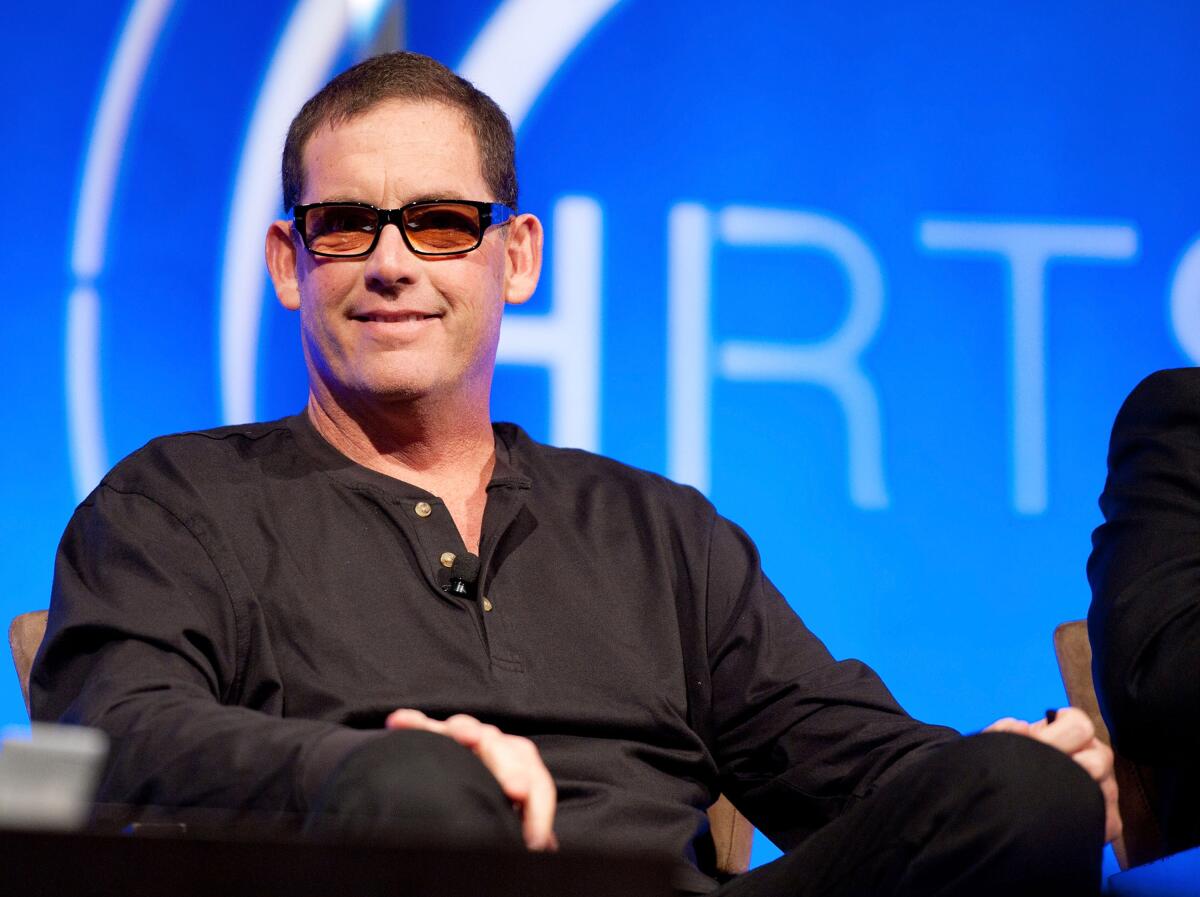
Fleiss is aware that some players, including the Dodgers’ Clayton Kershaw and Angels’ Mike Trout, have objected to the possibility of a bubble environment, in which they would be isolated from their families. For argument’s sake, let’s leave aside the issue of children and focus on players not seeing their wives or girlfriends, perhaps for months.
“The biggest problem with why sports leagues will never do it is that I don’t think the players will be able to maintain quarantine. These guys are never going to be able to go cold turkey. You’ve got to be able to embrace that truth and make that part of the game.”
Remember, Fleiss is the guy who dreamed up “The Bachelor.”
“What you do is, each game, you load up the stadium with their wives, at a distance from them and at a distance from each other, so there is no quarantine violation. The winning team gets to have their wives tested, and then essentially a conjugal visit.
“You can [film] all the girls. They’re beautiful. They’re in the stands, separated in their own sections or whatever. Those guys are now playing for more than the pride of winning a baseball game. If you go on an eight-game losing streak, that’s not good.”And the rose
The offering of the rose is a signature element of “The Bachelor.” How about incorporating it into baseball — say, a manager gets a wild card to use any one batter at any one point in the game?
For instance, if the Angels had the bases loaded with two outs in the seventh inning, with the score tied and Jason Castro due up, manager Joe Maddon could play his wild card by handing a rose to Trout so he would bat instead.
So, Fleiss, how about a rose for baseball?
“Reinstate Pete Rose. The final rose, man. There it is.”
::
SCOTT KAUFER is a television writer and producer. He was an executive producer of “Boston Legal,” a supervising producer of the sports-agent comedy “Arliss,” and a vice president at Warner Bros. Television.
Kaufer believes baseball could excite fans interested in being the only spectator at the ballpark. He proposes that, for each game, the home team would set up a contest or sweepstakes to select a designated fan.
“The home team would pick up, in a virus-safe way, in a hermetically sealed stretch limo or whatever they want, a fan chosen well in advance. He could sit wherever he wanted: luxury box, stadium club, owner’s box, front row, press box, anywhere he wants. He could move.”
One concession stand would be fully stocked, and the fan could come by and grab food or drink whenever he or she wished. The fan would be announced on the public address system, throw out the first pitch, and be listed in the box score: Attendance—1 (Grace Cohen).
Trips to the movies and baseball stadiums are out of the question at the moment, but taunting the Astros over their 2017 World Series title remains in season.
The fan would be encouraged — but not forced — to sing “Take Me Out to the Ballgame.”
“Baseball purists probably will hope, as I earnestly do, that each day’s designated fan will cowboy up and attempt the song solo. And I know what you’re thinking — the lyrics would need a bit of a tweak. So I would respectfully suggest:
“Take me out to the ballgame,
“Take me out — I’m the crowd!
“Buy me some peanuts and Cracker Jack,
“But they’re free as a matter of fact. ...”Give the manager two lifelines
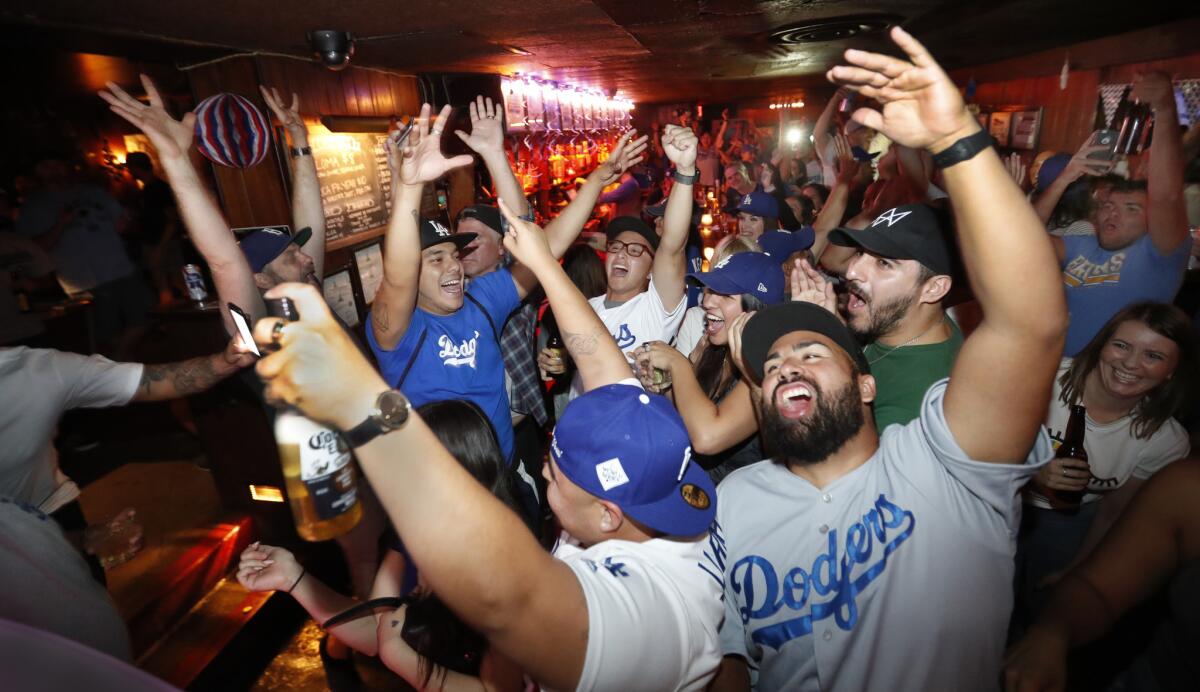
Baseball marketing folks can hardly finish a sentence without using the words “fan engagement.” For Kaufer, the gold standard of audience engagement shows is “Who Wants to Be a Millionaire.”
So, with fans limited to watching from home, let them play along. During a game, each manager would use two of the trademark “Millionaire” lifelines: phone a fan or poll the fans.
When the Dodgers are faced with deciding whether to keep Kershaw in the game or bring in Kenley Jansen, manager Dave Roberts could use one of the lifelines.
“The manager would turn to the camera and say, ‘I’m going to phone a fan’ or ‘I’m going to poll the fans,’ ” Kaufer said.
“If we can tolerate a delay for instant replay, this will be a much shorter delay. You’ll have the manager mic’d so we hear the ringing in the background, the fan being called: ‘Hello, this is Dave Roberts. What do you think?’”
Teams could run contests to designate the fan on the receiving end of the phone-a-fan question each day, and every viewer wanting to participate in a poll could do so instantly on an app.
When sports returns there could be big changes -- face masks, thermometers and social distancing -- in order to protect everyone from the coronavirus.
Fans would have the satisfaction of saying they told the manager just what to do, no matter how it plays out.
“He’s not required to take the advice, just as contestants on ‘Millionaire’ are not required to take the advice,” Kaufer said, “but he is required to make the call.”
::
ROB MILLS is a senior vice president at ABC, in charge of reality and late-night programming. He does not see why a stadium without fans should look empty to viewers.
“Holograms in the stands could be interesting: a virtual audience,” he said.
If Tupac Shakur could appear at Coachella after his death, imagine the possibilities: Gene Autry cheering his beloved Angels one more time. Sandy Koufax sitting next to Jackie Robinson, watching the Dodgers.
And let fans buy their way into the crowd: Make a donation to coronavirus relief, and your hologram is in the front row.Fit it into a time slot
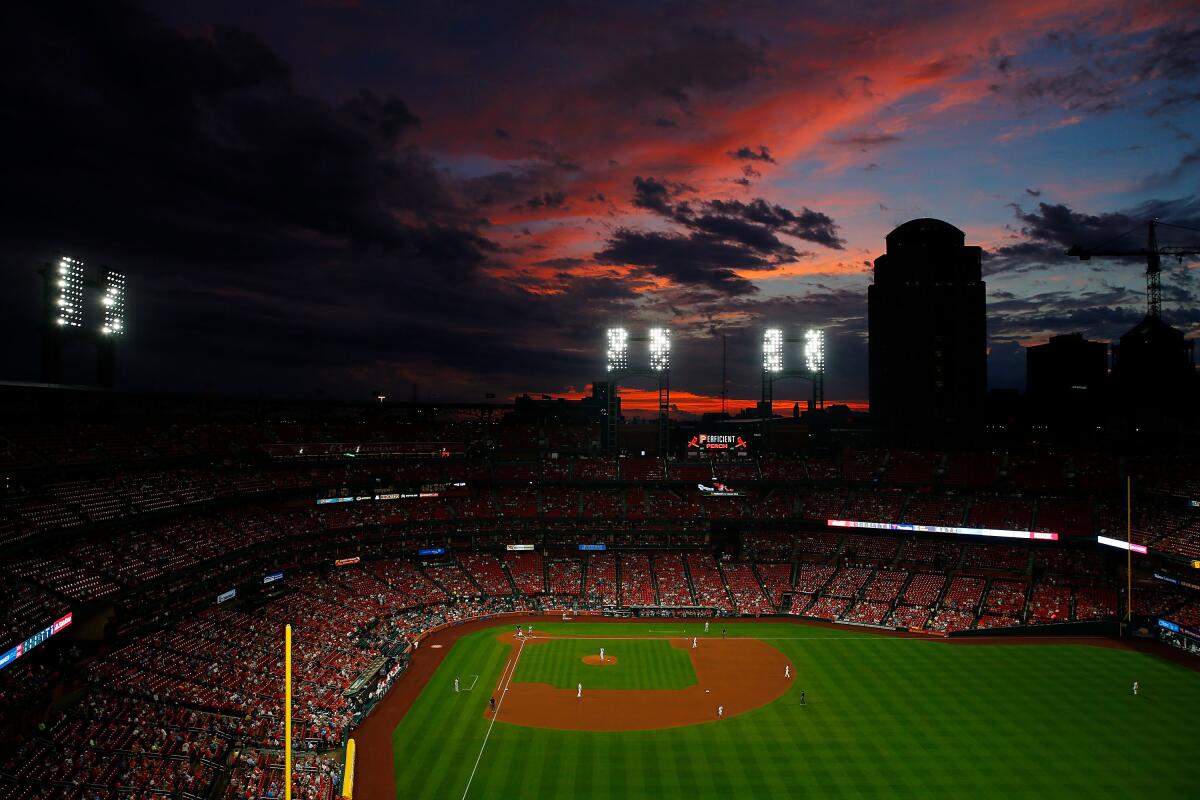
For all the tweaks baseball has made toward a faster game — limiting mound visits, shaving seconds off commercial breaks, eliminating the four throws in an intentional walk — the average time of game last season was a record high: 3 hours 5 minutes 35 seconds. Mills has seen enough.
“It’s so long,” he said. “If you look at it like a TV show, from an entertainment standpoint, you’d have a timing sheet: Here’s your format, and it’s got to be done in this amount of time.”
Try something radical: The game is over after three hours, period. Better yet: The game is shortened to seven innings, but no matter what, it’s over after two hours. If Shohei Ohtani is on the bench, and the Angels are saving him for a pinch-hit appearance, Maddon wouldn’t want to risk time running out without using him.
“That’s where it gets really interesting. You’re going to manage the game totally different,” Mills said.
MLB Commissioner Rob Manfred has said he would consider extra-inning tiebreakers in the regular season but not in the postseason. Same thing here. Enforce the rule that requires staying in the batter’s box, put in a pitch clock, and thwart stall tactics. Eliminate mound visits, change pitchers from the dugout and eliminate warmup pitches — that’s what the bullpen is for.
“It’s like you were playing speed golf, except this is speed baseball,” Mills said. Go young. Go TikTok
Even a two-hour game might be too long to capture the attention of youngsters and turn them into fans.
“Obviously, the thing we deal with in TV is short attention span,” Mills said.
Players will make TikToks, the bite-sized videos kids crave. Players will become more likable as they show off their personalities, goofing off with one another, in the clubhouse or between innings.
Better yet, sponsor a contest in which kids can direct players, virtually, in a TikTok video.
“Have kids choreograph something and get it on there. That’s going to give them a vested interest,” Mills said. “Kids could say, ‘I made this dance, and you’re all going to do it in the clubhouse.’ People would love to see that.”
What ideas do you have to make quarantined baseball more fun? Use the comments section below to share how you would make the game more enjoyable for fans watching from home.
More to Read
Go beyond the scoreboard
Get the latest on L.A.'s teams in the daily Sports Report newsletter.
You may occasionally receive promotional content from the Los Angeles Times.

